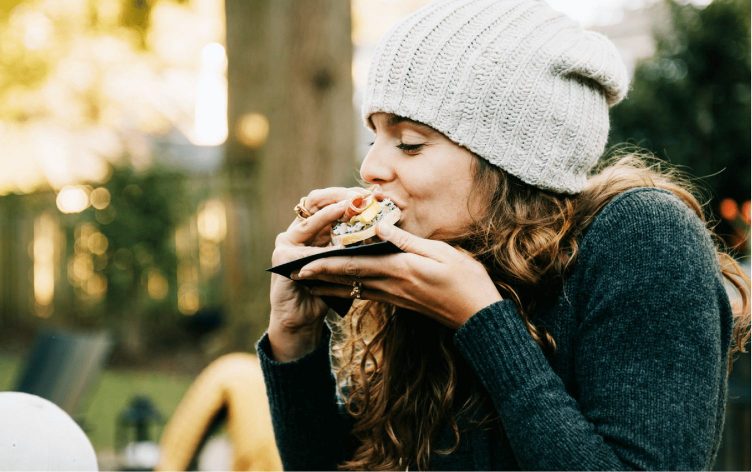
When it comes to losing weight, diet matters. But sticking to a strict calorie-counting regimen might not be the best approach to move the needle on the scale. In fact, recent research published in the International Journal of Obesity found that taking diet breaks had a positive impact on weight loss.
The study followed 51 men who were assigned to two groups: One group maintained a diet for 16 weeks; the other group stuck to the diet for two weeks and then took a two-week break, repeating the pattern for 30 weeks (to ensure each group dieted for a total of 16 weeks).
Both groups had their calorie intakes cut by 1/3, consuming 900–1,000 calories per day during their diet weeks.
At the end of the study period, the dieters who took breaks lost an average of 8 kilograms (17.6 pounds) more than those who remained on their diets without breaks.
In a statement, lead researcher Nuala Byrne, PhD, exercise physiologist and professor at the University of Tasmania, attributed the differences in weight loss to changes in biological processes that occur during dieting, noting, “When we reduce our energy (food) intake during dieting, resting metabolism decreases to a greater extent than expected … making weight loss harder to achieve.”
Taking a break from dieting resets the “famine response” that tells the body to hold onto fat, making it easier to lose weight, Byrne said.
BENEFITS BEYOND WEIGHT
Joan Salge Blake, EdD, a dietitian and clinical associate professor of nutrition at Boston University points out that those who took two-week breaks from dieting not only lost more fat but also lost less muscle, had a lower reduction of their metabolic rate and better weight-loss retention six months after the study ended.
Blake is quick to point out that dieters still adhered to calorie restrictions during their breaks. In other words, the breaks were not license to ignore calorie counts or overindulge on pizza and desserts.
“The folks who took a break didn’t overeat during the break phase because they were provided with all their meals during the study,” she explains. “During the break phase, they were given the precise amount of calories to maintain their weight — and no more.”
A 2016 study published in PLOS ONE reported similar results. Obese mice that were placed on restricted diets for 5–6 days followed by 1–3 days of unrestricted access to food had two times greater weight-loss efficiency than mice that remained on the calorie-controlled diet.
READ MORE > SCIENCE INVESTIGATES: FASTING VS. CALORIE RESTRICTION
THE IDEAL APPROACH
Taking the right approach to a diet break is the key to making it work.
Research published in the Canadian Medical Association Journal noted that intermittent fasting could encourage binge eating. Dieters who fasted for short periods often overate on their non-fasting days, eating heaps of high-calorie foods — an approach Blake notes may not lead to long-term weight loss.
“In real life, if a person was to eat a restricted diet for two weeks and then go back to their original eating habits and eat more calories than they need, weight loss isn’t going to occur,” she says.
Even if research shows intermittent dieting can help with weight loss, it’s a slight reprieve, not a green light to reach for the ice cream. You’ll still need to be counting calories if you want the scale to budge.






